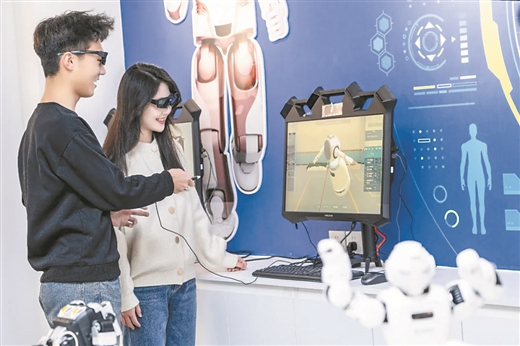AI becomes mandatory course for Guangxi undergraduates
Beginning this autumn, all first-year undergraduates in Guangxi Zhuang autonomous region will be required to take artificial intelligence courses. This initiative aims to enhance digital literacy among young people in response to rapid technological progress.
The move comes after successful spring 2025 trials at six universities, such as Guangxi University and Guilin University of Electronic Technology, where interdisciplinary AI modules attracted significant student interest.
The curriculum, designed to combine theory and practice, includes four main modules: fundamentals, algorithms, interdisciplinary integration, and innovation. It accommodates various majors—supplementing science students with mathematical foundations, offering business applications for management majors, and providing creative tools for art students.
Practical learning takes precedence. At Guilin University of Electronic Technology, biology students utilize AI for plant classification, while design students explore AIGC. Guangxi Normal University implements project-based learning, with student groups creating AI-enabled educational solutions. Collaborations with Huawei and Neusoft offer virtual labs and access to industry data, connecting classroom insights with real-world applications.

Students of Guangxi University of Foreign Languages experience artificial intelligence devices. [Photo/Guangxi Daily]
With 34 pilot cases covering areas from smart agriculture to the preservation of ethnic culture, the program will grow to include ASEAN-focused "AI plus" scenarios, capitalizing on Guangxi's status as a China-ASEAN cooperation hub.
This initiative aims to nurture versatile talent to drive regional digital development and foster cross-border technological cooperation.














